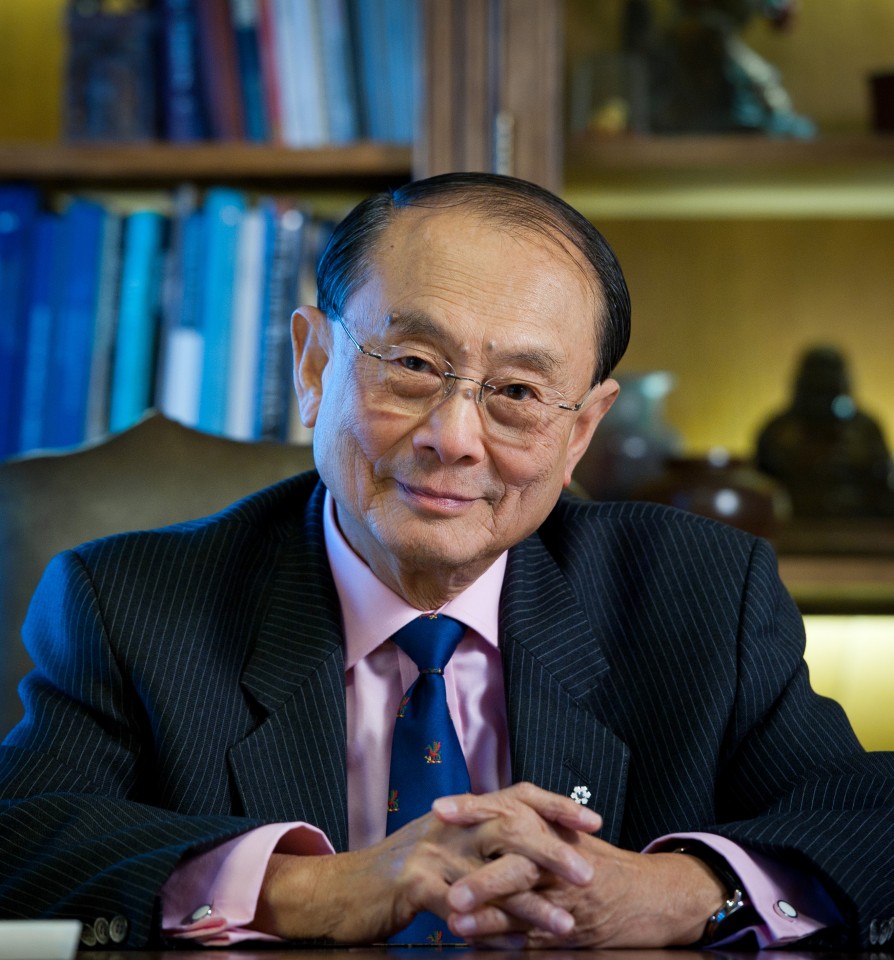Chan Gunn, a Vancouver physician who developed an innovative technique for pain relief, is giving $5 million to the University of British Columbia for construction of a new building devoted to exercise and sport medicine teaching, research and patient care.
The 13,480-square-foot building, to be named the Chan Gunn Pavilion, will become the new home for UBC’s sport and exercise medicine centre – one of the first academic sports medicine units in the world, and the first in Canada. Its home for the past 35 years, situated in the middle of UBC’s athletic fields, will be torn down this summer to make way for the National Soccer Development Centre.
Dr. Gunn and his wife Peggy made this gift to recognize UBC’s efforts to investigate, apply and teach intramuscular stimulation (IMS), his non-surgical, non-pharmaceutical technique for alleviating pain resulting from nerve damage. A blend of Eastern acupuncture and Western medicine, it involves inserting a needle deep into muscle, causing it to relax, thereby relieving pressure on whichever nerve is causing a patient’s pain.
“Having a connection to UBC is very important for teaching and research into IMS,” Dr. Gunn says. “IMS will have a permanent home to grow.”
The Gunns committed $5 million and UBC committed $2.25 million for the first phase of the building, which will house clinical and research space open to community care and academic activity, including IMS. Phase 2 will add 7,600 square feet of research space to the building when UBC is able to raise sufficient funds. The building will be next to the Doug Mitchell Thunderbird Sports Centre on Wesbrook Mall.
“The Chan Gunn Pavilion will create capacity to integrate IMS into the Division of Sports Medicine, and to expand research, teaching, and care into that technique and other therapies for sports injury and exercise-related health care,” said Gavin Stuart, Dean of the Faculty of Medicine and UBC’s Vice Provost, Health.
Construction is scheduled to start in December 2015 and is expected to take two years.
BACKGROUND | Chan Gunn, IMS and Sport Medicine
Malaysia, the U.K., then Canada: Dr. Gunn received his bachelor’s, master’s and medical degrees from Cambridge University. After nine years of general practice in his home country of Malaysia, Gunn and his wife immigrated to Canada in 1966, where he joined the Workers’ Compensation Board in Vancouver as a staff physician. In that position, he began to explore the nature of chronic, non-injury pain, and after years of research, developed a new approach to relieving it.
A new technique: Dr. Gunn asserts that intramuscular stimulation (IMS) can help people with pain in their back, neck, arms and legs, or those suffering from headaches or neuralgia, which includes extreme skin sensitivity. Most patients need just a few treatments. Dr. Gunn spent most of his career providing IMS therapy, training others in the technique, and raising awareness in the medical community of its potential. There are now about 160 physiotherapists and physicians practicing IMS in British Columbia, including those at UBC’s sports medicine centre.
In 2011, the Gunns donated $1 million to UBC to create an IMS training program, an IMS research fund for graduate and undergraduate students, and an annual lecture focusing on IMS and pain caused by nerve damage (known as neuropathic pain). The training program has a waiting list of 30 physicians and physiotherapists.
Pioneers in sport medicine: UBC is recognized as the birthplace of sport medicine, with seminal studies on stress and overuse injuries, innovative surgical techniques, novel physiotherapy approaches to injury (including IMS), and the use of imaging in musculoskeletal medicine originated. The sport medicine centre is viewed as a model for similar units across North America.
The centre, currently led by professor Don McKenzie, has more than 50 professionals involved in patient care, education and research, including sport medicine physicians, orthopaedic surgeons, internists, musculoskeletal radiologists, physiotherapists and exercise scientists. This multidisciplinary, integrated team provides care for active individuals, patients with chronic medical problems, Olympic athletes, national teams, professional and amateur sports teams. Its high volume of patients also provides numerous educational opportunities for medical students, residents, clinical fellows and practicing physicians.
The sport medicine centre will temporarily relocate to the Djavad Mowafaghian Centre for Brain Health in July.
